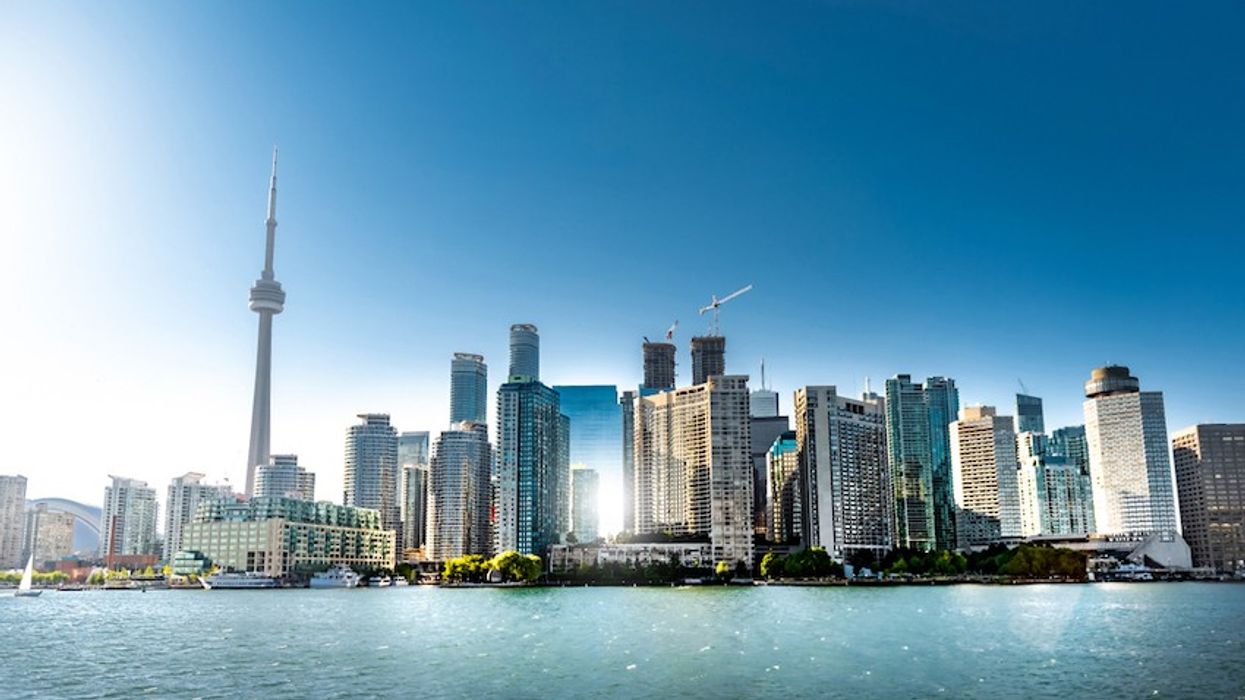The Greater Toronto Area's rental market continued to trend toward pre-COVID levels during the second quarter of the year, with leases surging, vacancies declining, and rents increasing as lockdown measures began to ease.
As life started to return to normal, downtown Toronto led the growth in rental activity in Q2 as the mass vaccination rollout and gradual reopening of the economy combined with attractive rent discounts brought renters flooding back to the downtown core.
At the end of Q2-2021, newer purpose-built rental apartment projects that have been completed in the GTA since 2005 had a vacancy rate of 5.2%, decreasing from a high of 6.5% in Q1-2021 but remaining above the 2.1% level from a year ago, according to Urbanation.
Vacancy rates averaged 6.9% (8.8% in Q1-2021 and 2.7% in Q2-2020) in Toronto and 1.4% (1.5% in Q1-2021 and 0.8% in Q2-2020) in the 905 area.
READ: Toronto-Area Rental Market Expected to Roar Back to Life in the Fall
“The GTA rental market began to resemble pre-COVID times during the second quarter, which is a testament to a strong foundation of demand that will only grow going forward as immigration recovers, schools and offices reopen, and expensive ownership housing leads to greater levels of renter household formation," said Shaun Hildebrand, President of Urbanation.
Urbanation says a total of 1,242 new purpose-built rental units were completed and began occupancy during Q2-2021, marking the second-highest quarterly total for new supply additions in more than 30 years (behind the 1,782 units completed in Q1-2019).
The new supply, which is located entirely in Toronto, was met with a high level of demand, as quarterly net absorptions (the change in total occupied units) within the rental stock built since 2005 rose to 716 units -- four times higher than the level from a year ago (179 units) and 67% above the five-year quarterly average (430 units).
During this same period, average rents for units available within newer rental buildings completed since 2005 in the GTA were $2,289 ($3.18 per square foot) during Q2-2021, declining 5% year-over-year, but still up 1.9% quarter-over-quarter -- marking the first rent increase since the start of the pandemic.
However, Urbanation notes that incentives were still prevalent in the market during the second quarter, with 88% of surveyed buildings offering some form of incentive or discount to renters. One month of free rent continued to be the most common with a 52% share of incentives, followed by two month’s free rent with a 25% share of incentives.
Lease activity also showed major signs of improvement during Q2-2021, after activity reached a record high. The number of leases signed for condominium rentals in the GTA more than doubled from a year ago, surging 108% to 12,747 units — the highest Q2 level on record.
Urbanation says over the last four quarters, condo lease transaction activity reached an "unprecedented" 50,004 units -- 58% higher than the pre-COVID peak of 31,696 units leased in the four-quarter period to Q1-2020.
Demand in the latest quarter was driven by the former City of Toronto -- largely representing the downtown market -- where the number of new leases signed grew 129% year-over-year in Q2. The 7,642 condo lease transactions in the former City of Toronto represented a record high share, indicating that renters are starting to return back to the core as the province continues to reopen.
With leases up, Urbanation says studios recorded the strongest annual growth in lease transaction volume of 154% in Q2, after experiencing the sharpest drop in rents during the pandemic.
At an average of $2,124, condo rents in the GTA were down 9.8% year-over-year in Q2 but increased 4.3% quarter-over-quarter. In the former City of Toronto, average condo rents of $2,147 grew 4.9% from the first quarter, remaining 12.5% lower than a year ago.
On a per square foot basis, Urbanation says average GTA condo rents rebounded by 5.2% between Q1 and Q2 (to $3.06 psf), with studio rents jumping by 6.7% quarter-over-quarter to $3.75 psf ($1,532) but still 12.1% lower than a year ago ($4.27 psf; $1,778).
"While new construction activity is also on the rise, the level of supply underway is expected to lag behind demand, creating conditions for rents to continue rising towards pre-covid levels and beyond in the months to come,” added Hildebrand.
Though, Hildebrand isn't alone with his expectations for what's to come for the GTA's rental market.
With the borders poised to reopen, leading to a ramp-up in tourism and students returning to campus, and office towers expected to return to full capacity, Bullpen Research & Consulting recently forecast a rent growth of 12% to 14% next year.





















